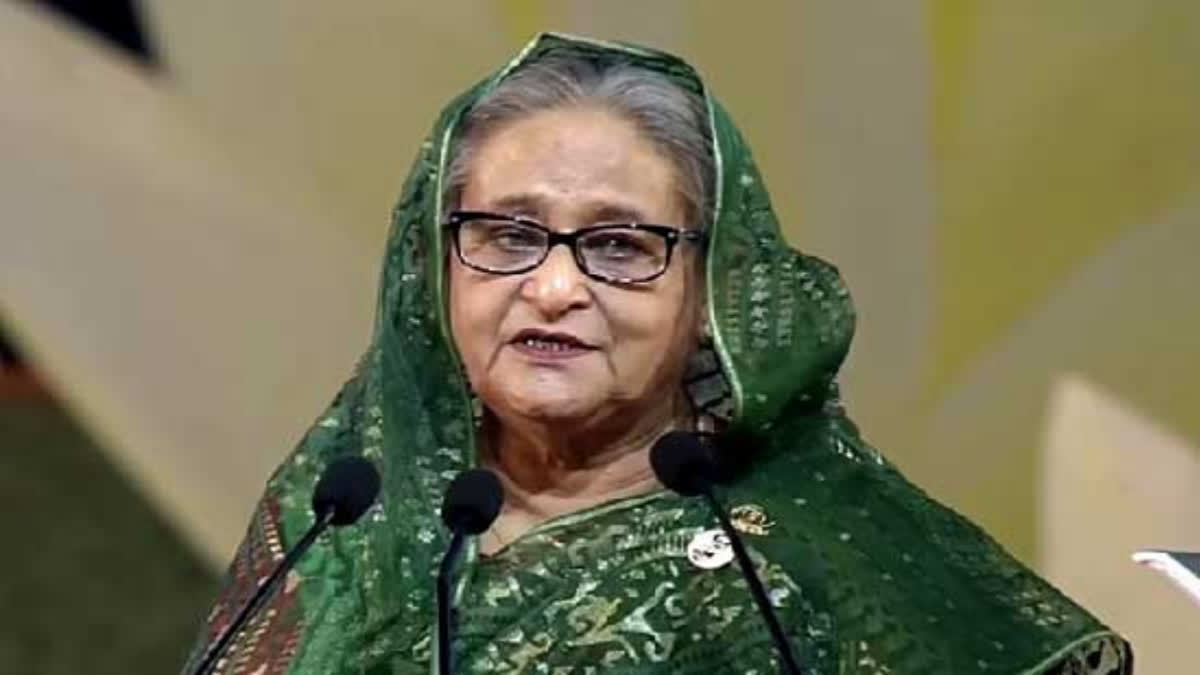New Delhi: With reports of violence involving ruling and opposition party activists and demands for the formation of a caretaker government, the run-up to the parliamentary elections in Bangladesh scheduled to be held in January next year has been contentious to say the least.
These coupled with concerns voiced by Western powers, including the US and the European Union (EU), apart from the UN about whether “free and fair” elections could be possible at all in Bangladesh is actually making India uncomfortable as it does not want chaos in its neighbourhood.
Last weekend, over 100,000 protesters, mainly from the opposition Bangladesh Nationalist Party (BNP), hit the streets demanding the resignation of Prime Minister Sheikh Hasina and the formation of a caretaker government to ensure free and fair elections. They were joined by activists of the Jamaat-e-Islami, a radical Islamist group known for its links with Pakistan. According to the opposition, if Hasina stays in power, the elections will be manipulated in favour of her party, the Awami League.
Leader of the BNP and former Prime Minister Khaleda Zia is ineligible to contest the elections as she is serving a prison sentence after being convicted for two corruption cases. As such, the BNP leadership believes that if Hasina does not resign and a caretaker government is not formed, the democratic election process will be undermined.
In fact, Abdul Moyeen Khan, a member of the BNP’s highest policy-making body, told Reuters news agency that his party as well as other opposition parties will boycott what he called will be a “fake election” if a caretaker government is not formed. The BNP believes that boycotting the elections in the absence of a caretaker government will delegitimise any win by Hasina and might even invite international sanctions.
Also read: PM Modi, Sheikh Hasina jointly inaugurate rail, power sector projects between India, Bangladesh
It may be mentioned that the BNP had boycotted the 2014 parliamentary elections citing unfair conditions following months of protests, strikes and blockades. In the 2018 parliamentary elections, with Khaleda being ineligible to contest due to her conviction, the BNP was completely routed managing only seven seats in the country’s 350-seat parliament.
The threat of international sanctions is not unfounded. The US has already raised concerns about the possibility of free and fair elections. In May, Washington said that it was implementing a policy allowing for the restriction of visas to Bangladeshis who undermine the democratic election process in the country of nearly 170 million people.
On November 1, US State Department spokesperson Matthew Miller told reporters that Washington wants what the Bangladeshi people want for themselves – free and fair elections conducted in a peaceful manner.
“I have said a number of times, the holding of free and fair elections is the responsibility of everyone - all political parties, voters, the government, security forces, civil society,” Miller said.
The same day, the UN said that it does not want to see any harassment or arbitrary arrest or violence before the upcoming 12th parliamentary elections in Bangladesh. “I think on our viewpoint on Bangladesh and the need for free and fair election, I think we’ve spoken out very clearly,” Stephan Dujarric, spokesperson of UN Secretary-General Antonio Guterres, said in response to a question in a media briefing. “We’ve also spoken out against the need not to see any harassment or arbitrary arrest or violence in this period.”
In September, the EU said will not deploy a full election observer team to Bangladesh, citing a lack of “necessary conditions”, prompting the opposition in the South Asian nation to declare that the polls would not be fair. EU Ambassador Charles Whiteley said in a letter to the Bangladesh election commissioner that the decision “reflects the fact that at the present time, it is not sufficiently clear whether the necessary conditions will be met”, without giving further details.
Meanwhile, following the violence last weekend, the UN’s Office of the High Commissioner for Human Rights (OHCHR) has also expressed its concern. “As the country heads towards elections, we call on all political actors to make clear that such violence is unacceptable and to avoid any statements or actions that could constitute incitement to violence,” the OHCHR said in a statement.
According to Anand Kumar, Associate Fellow at the Manohar Parrikar Institute of Defence Studies and Analyses and author of two books on Bangladesh, what the US has said will tilt the elections against Prime Minister Hasina. “India does not want the political field in Bangladesh to be tilted against any political party,” Kumar said. “That’s why we are uncomfortable with what the US has said. We want to insulate ourselves from the domestic politics of a neighbouring country.”
Last month, when a Bangladeshi media team visited New Delhi, the Ministry of External Affairs made it clear that it is for the people of Bangladesh to decide how to hold the next national election in their country. “The Bangladeshi people will determine how the election will take place, ministry spokesperson Arindam Bagchi told the members of the team. “As a neighbour, India wants a stable and democratic government-run Bangladesh."
It may be mentioned here that Indian officials have also met representatives of the BNP and another opposition party, the Jatiya Party. So, will the formation of a caretaker government help ensure free and fair elections? “The demand for a caretaker government before elections always comes up,” Kumar said. “But, a caretaker government is not a panacea. We have seen what happened in 2007 when a caretaker government was installed. It developed its own agenda and continued in power for two years.”
At the end though, India would like to see Hasina retaining power despite the challenges her government faces, including high inflation and decline in foreign exchange reserves. “Chaos in Bangladesh will not be good for India,” Kumar said. “If Islamist forces come to power in Bangladesh, then insurgency will be revived in India’s northeastern region.”



